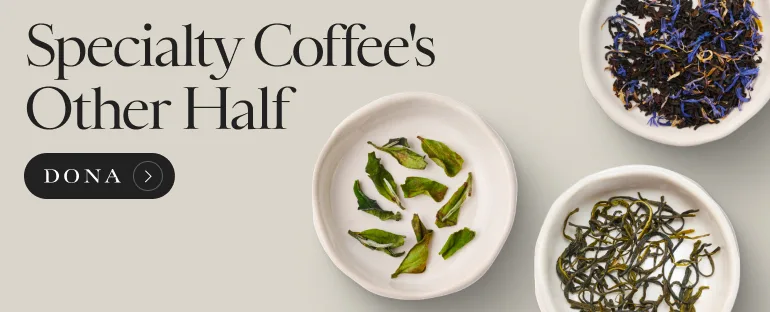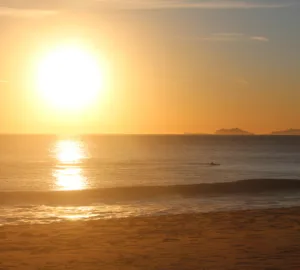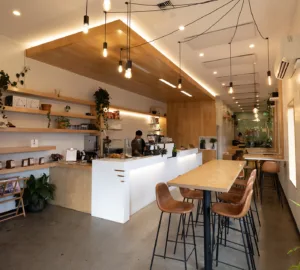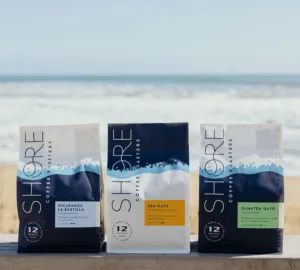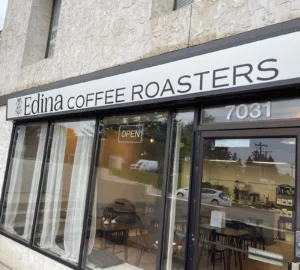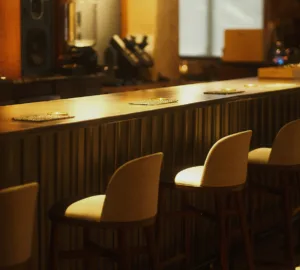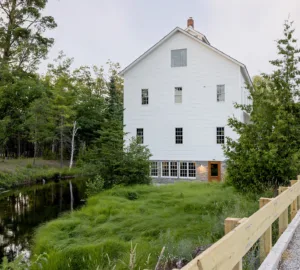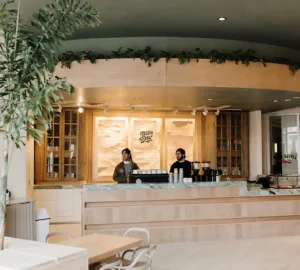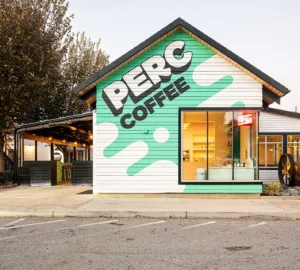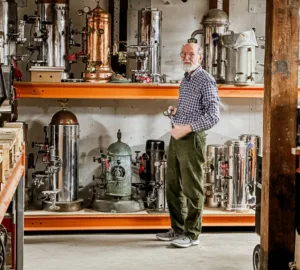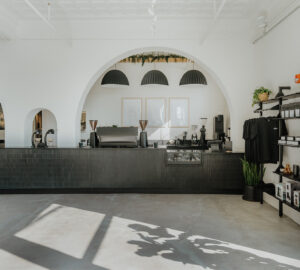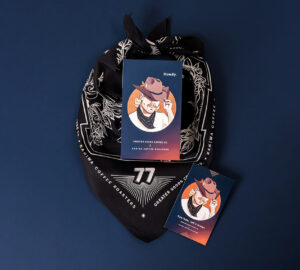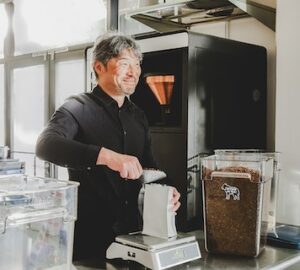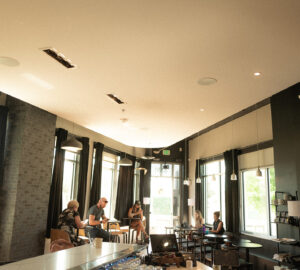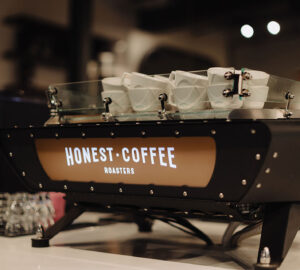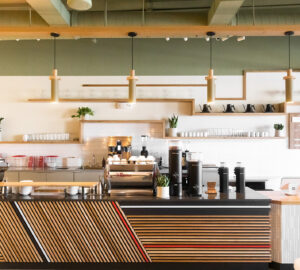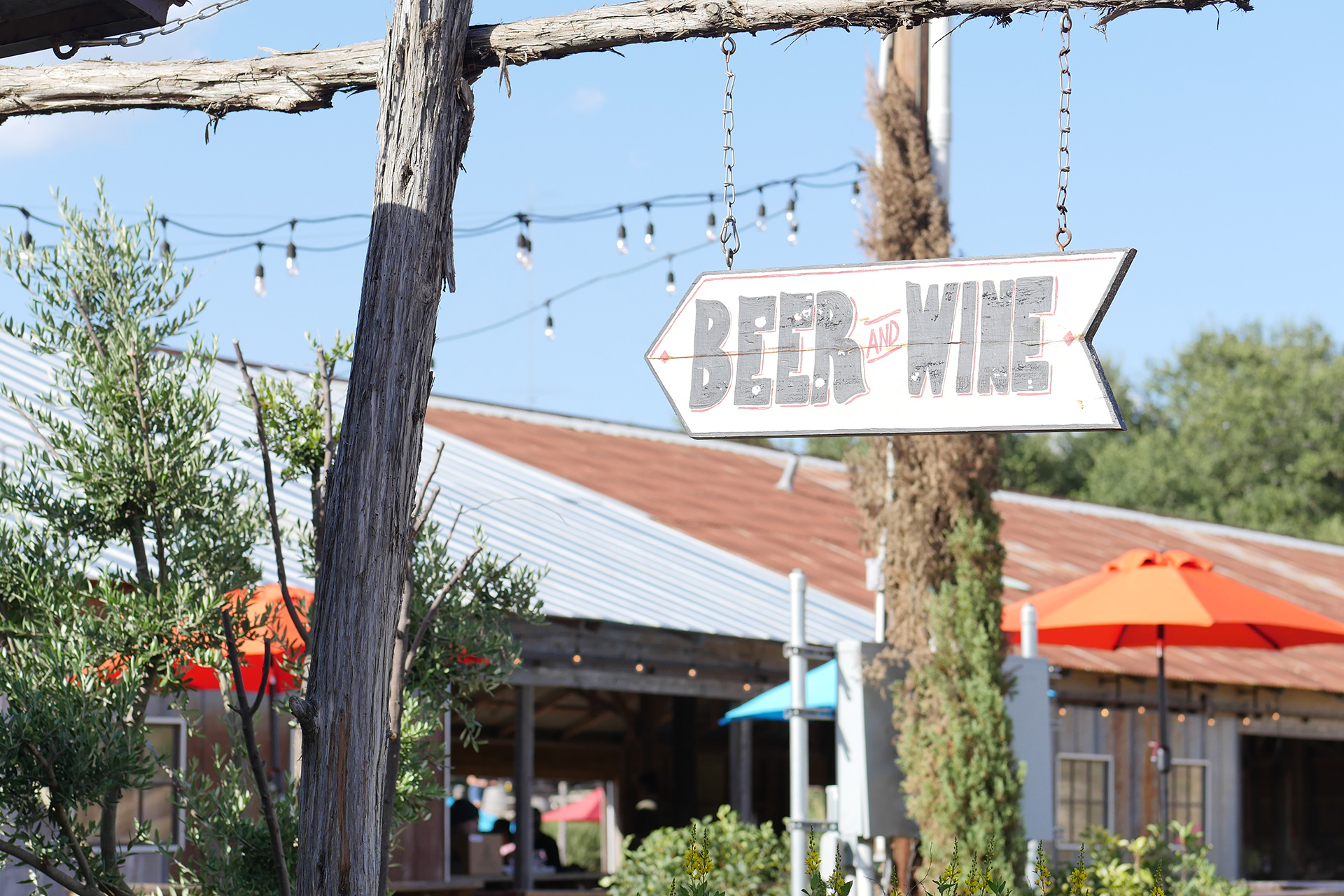
Austin’s Jester King Brewery is arguably the best brewery in Texas. And quite honestly, it’s a pretty easy argument to make, with forgiveness requested from Collective Brewing Project and Martin House, two new-ish Texas breweries making a case. When overseas bottle shares happen and I want to highlight the best of my neck of the woods, Jester King’s infinitely drinkable, low-ABV table beer Le Petit Prince is the first thing I pack and it is always a crowd-pleaser.
For the past seven years, the Hill Country-based brewery has tread heavily in the farmhouse style, focusing on the use of local, wild yeasts for the fermentation of their award-winning beers. Beer geeks travel hundreds of miles for the chance to grab as many as the brewery will allow of the limited release bottlings Jester King puts out on a near-weekly basis. Simply put, Jester King is a destination brewery.
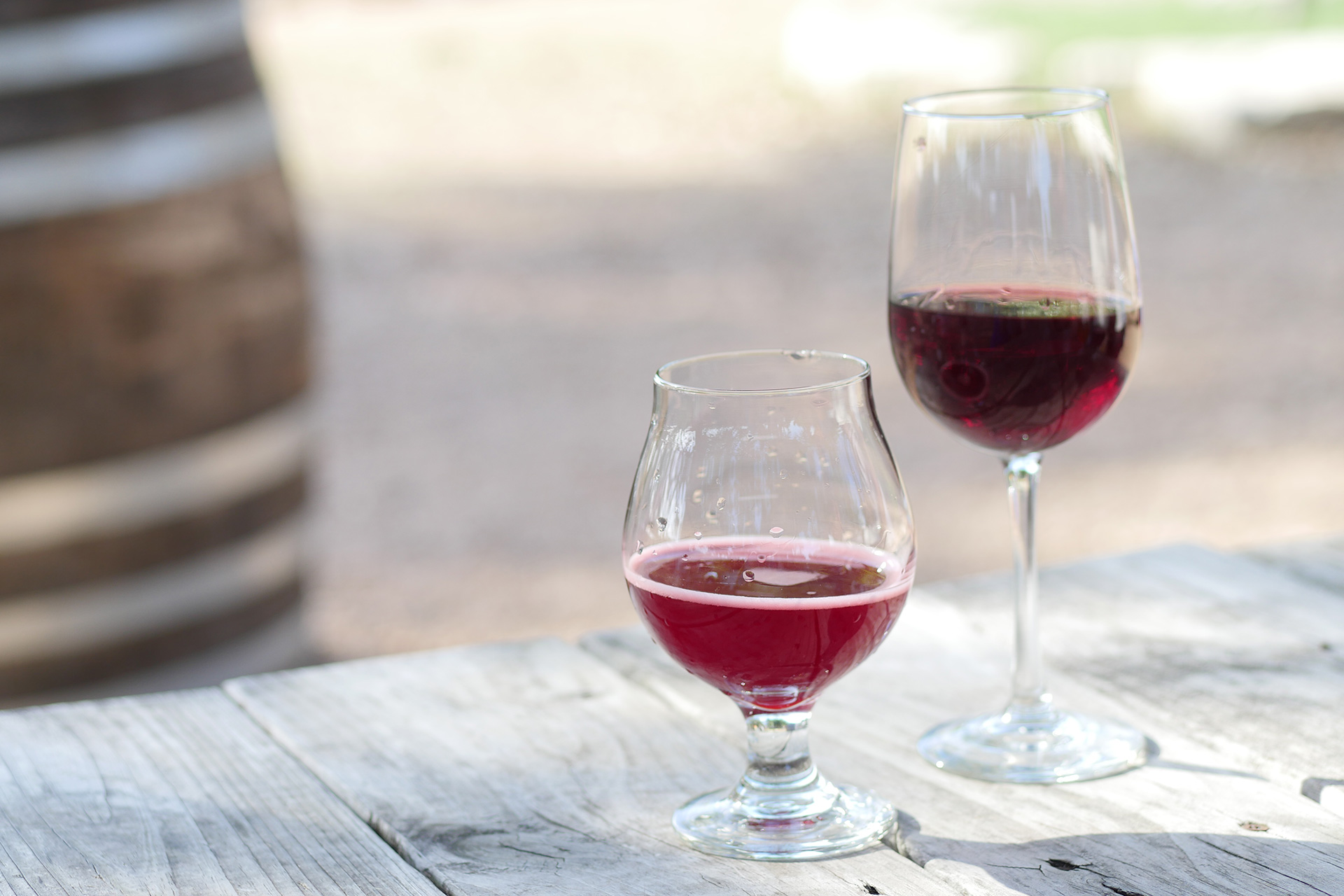
But it isn’t just a destination for beer geeks. Joy of joys, wonder of wonders: Jester King is also home to an exceptional list of minimal intervention wines. This is quite possibly the best wine list at a brewery in the United States. (Don’t @ me.) So with this in mind, I made the trek out to the Austin Hill Country to check out Jester King’s taproom, and for the first time in my life, visit a brewery for their wine list.
Located 18 miles west of downtown Austin, the Jester King brewery is a near 100-year-old machine shop that sits on 200+ acres of farmland. Most of the action is confined to a cluster of farmhouse buildings, where multiple taprooms and a bevy of outdoor picnic bench seating try to accommodate the hundreds if not thousands of visitors to the brewery each day.
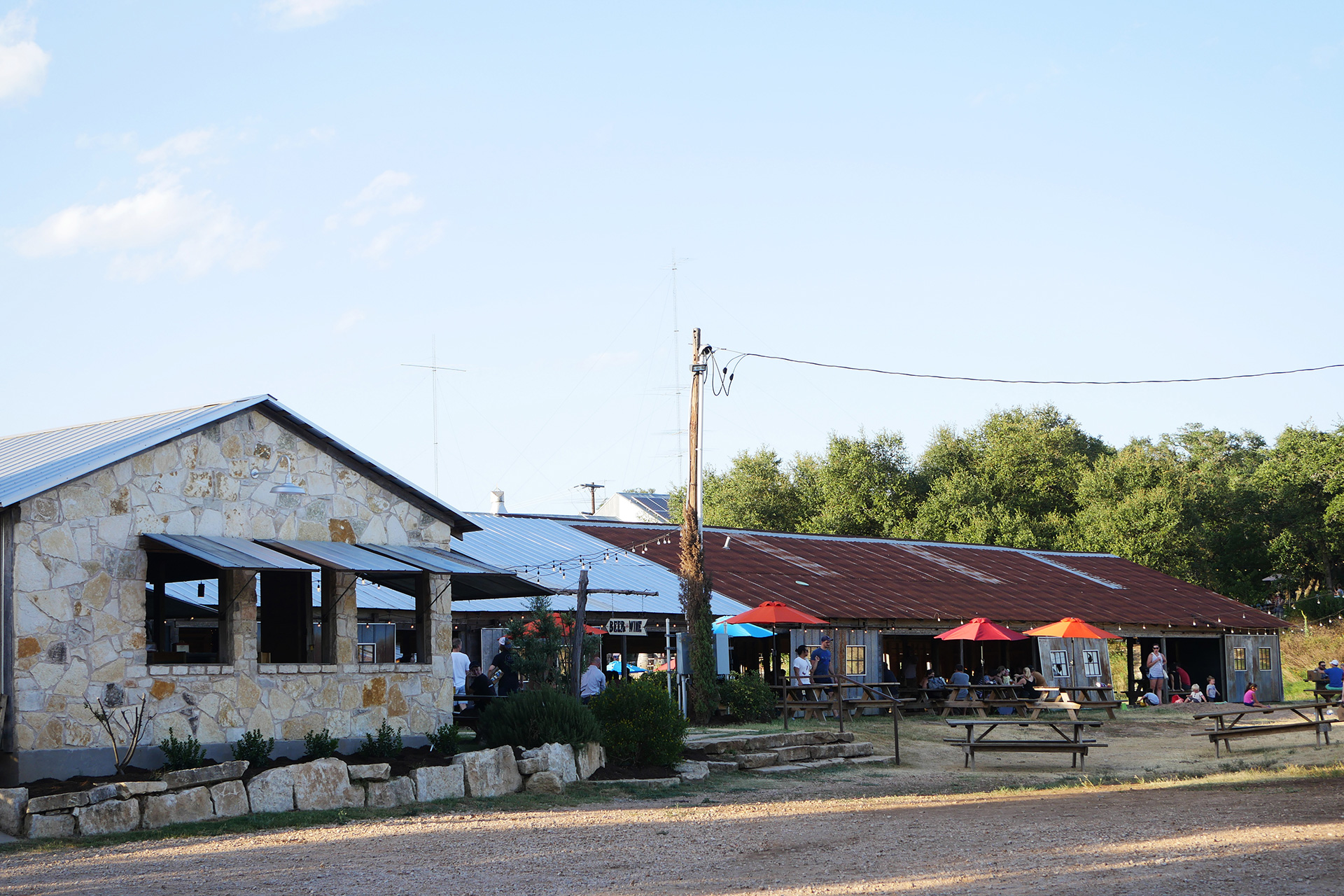
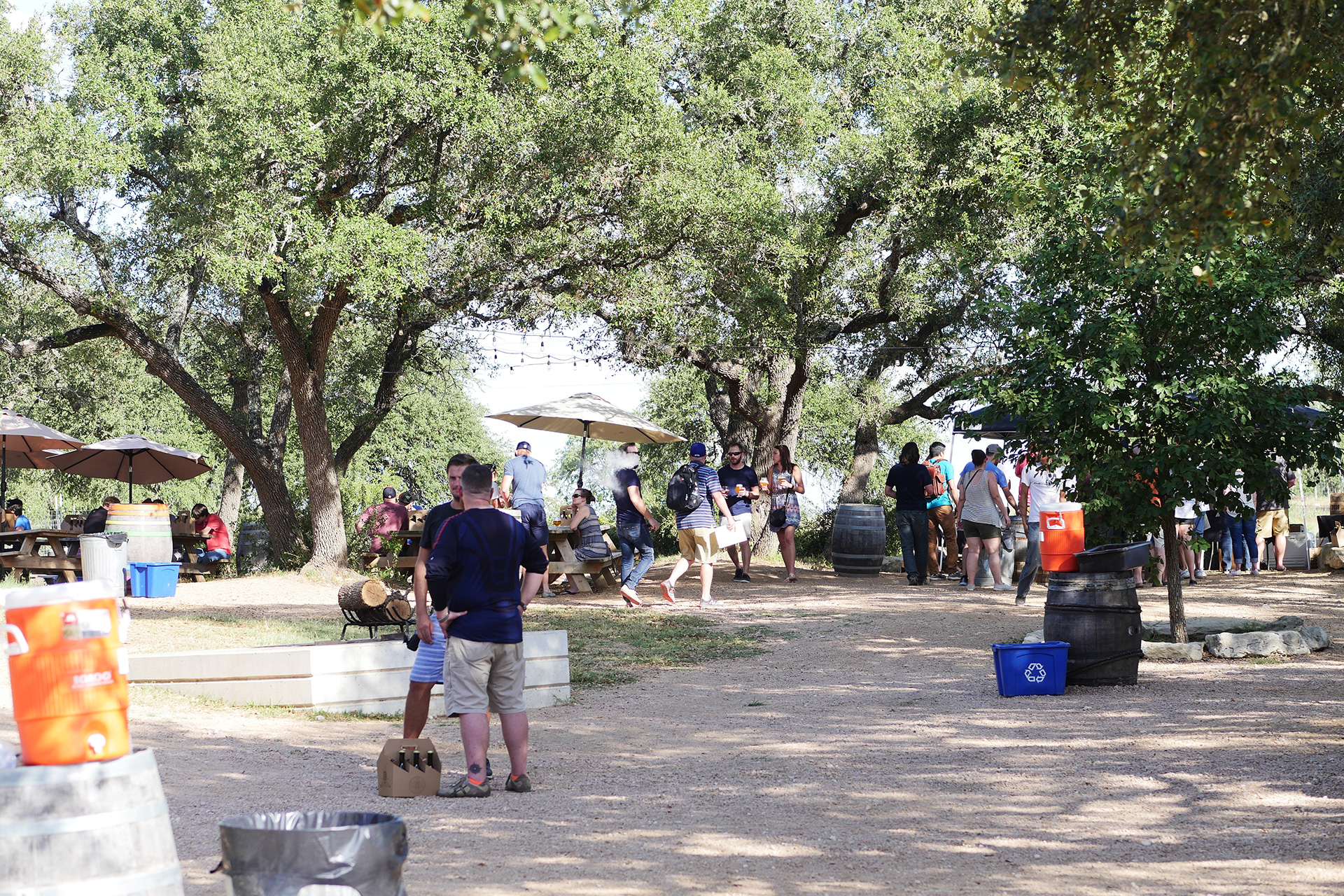
It’s a quintessential summer in Central Texas experience: it’s midday, it’s hot as hell, the landscape is filled with the sort of flora that can survive triple-digit temperature swings, and the place is packed. Heat is an accepted reality here. In Seattle, residents don’t carry umbrellas as a matter of pride. Here, our sweat-stained badges of honor come from how little the oppressive summers persuade us indoors.
I had the bad/good fortune of visiting during the release of Jester King’s highly sought-after 2017 Atrial Rubicite, a sour ale oak barrel-aged with raspberries. The lines for drinks were ridiculously long and full of people discussing the inner-workings of both their own home and commercial brews, but at the end of those lines were stellar quaffs and difficult decisions.
Along with their year-round favorites, seasonal offerings, and brewery-only releases, Jester King keeps a tight list of five by-the-glass wine offerings: two reds, two whites, and a rosé. The list is constantly in flux to accommodate the always-changing but mostly-brutally-hot Texas weather, to “be complimentary to the elements of the Hill Country,” as Wine Coordinator Traci Walker puts it. But expect to find things like Clos Cibbone’s Rosé of Tibouren, a lively, 100% Tibouren wine from Provence aged under fleurette for a year in 100-year-old foudres; and Brendan Tracey’s Wah Wah, the slightly funky Loire Valley blend of 75% Grolleau and 25% Côt.
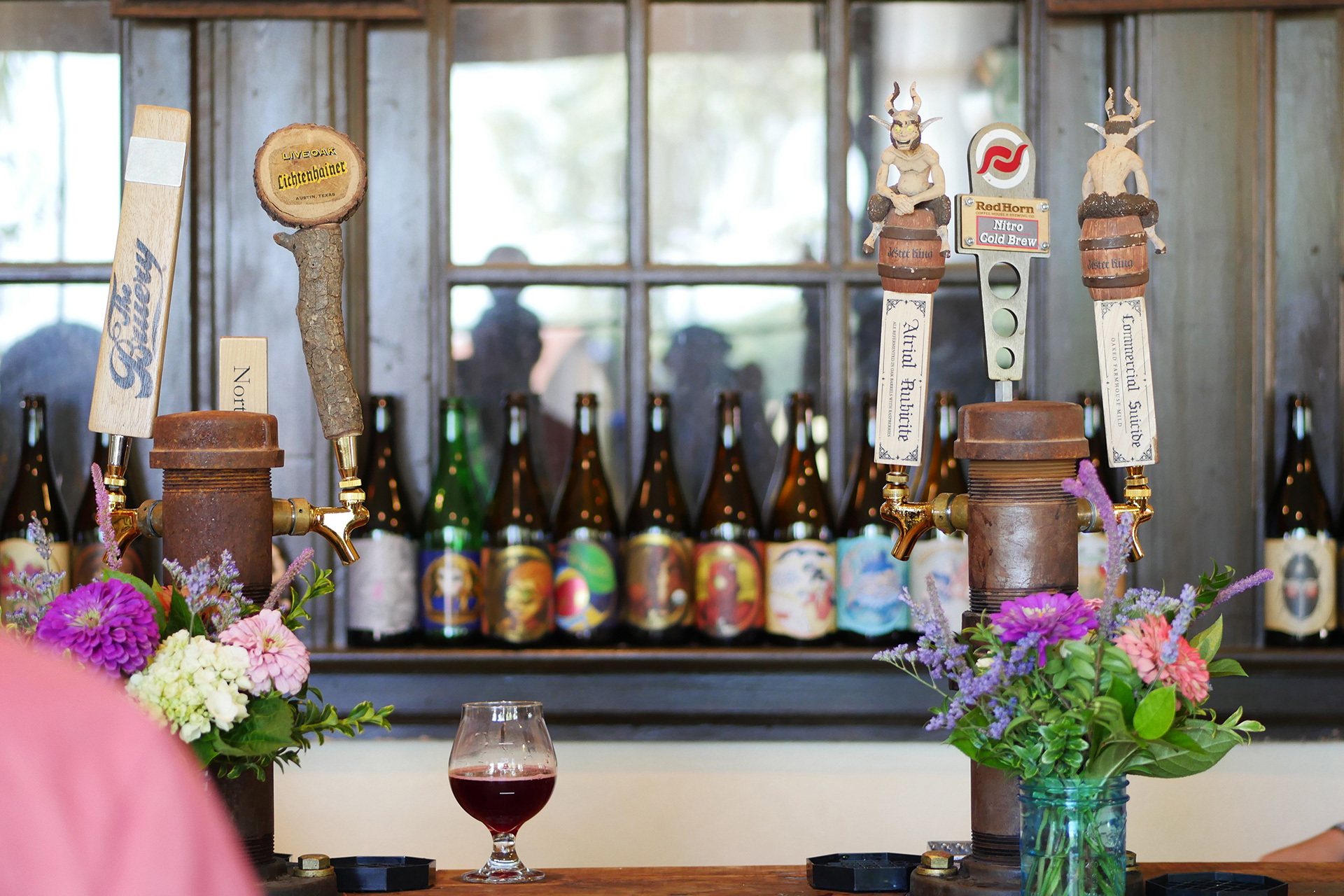
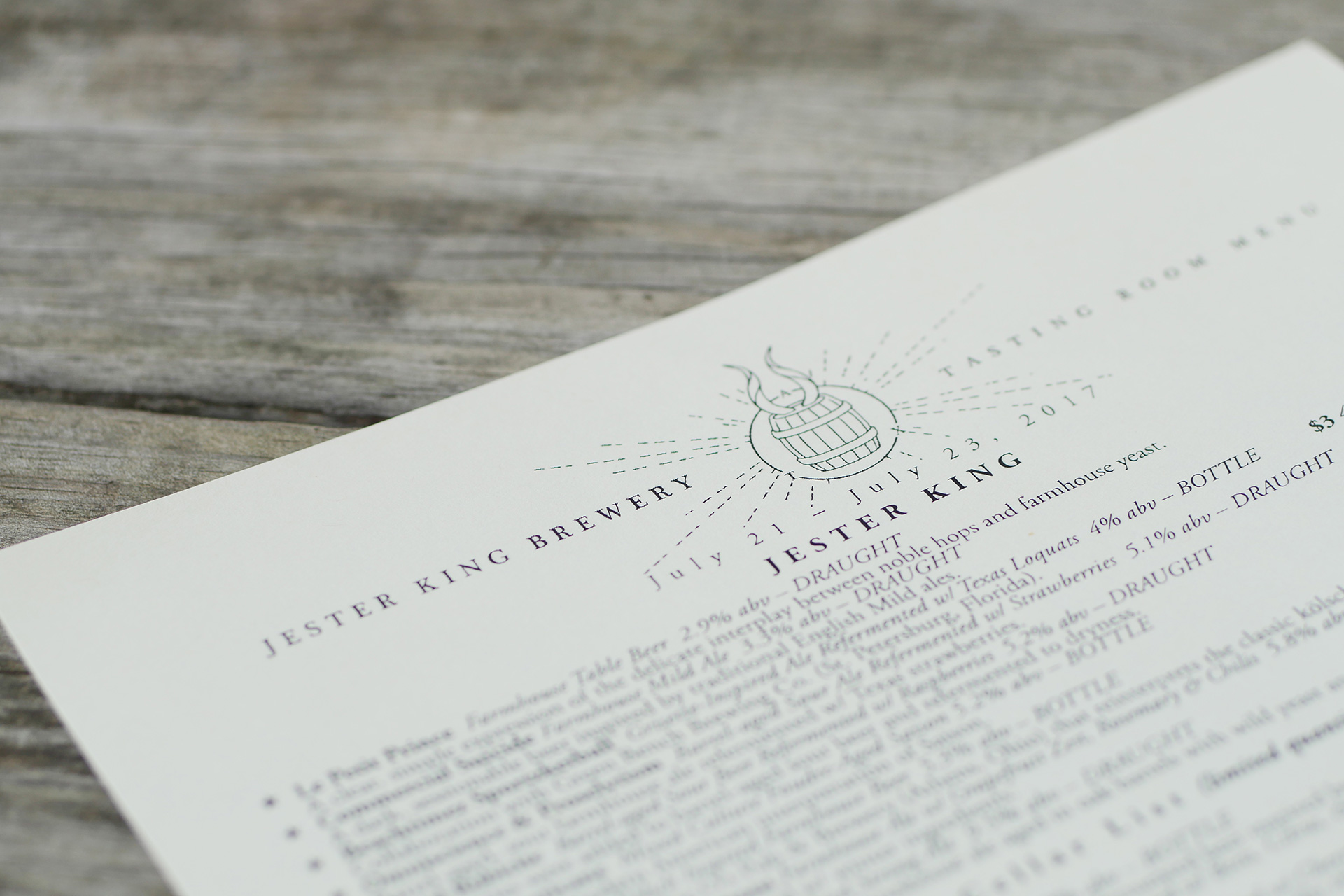
Walker, who along with fellow former cheesemongers Courtney Schwamb and Dan Largess comprise Jester King’s wine team, states the natural bent of their wine list is a function of Jester King’s approach to beer.
“Our philosophy is to make beers that are uniquely tied to a time, place, and people. A big part of that is using native yeasts and bacteria to ferment our beers, creating a sense of time and place that cannot be replicated outside of Texas Hill Country,” Walker tells me. “Yeasts used for fermentation of wines, too, can create that sense of place. I want the flavors of fermentation to come from yeasts that coexist on those grapes themselves rather than yeasts that are sourced from a lab.”
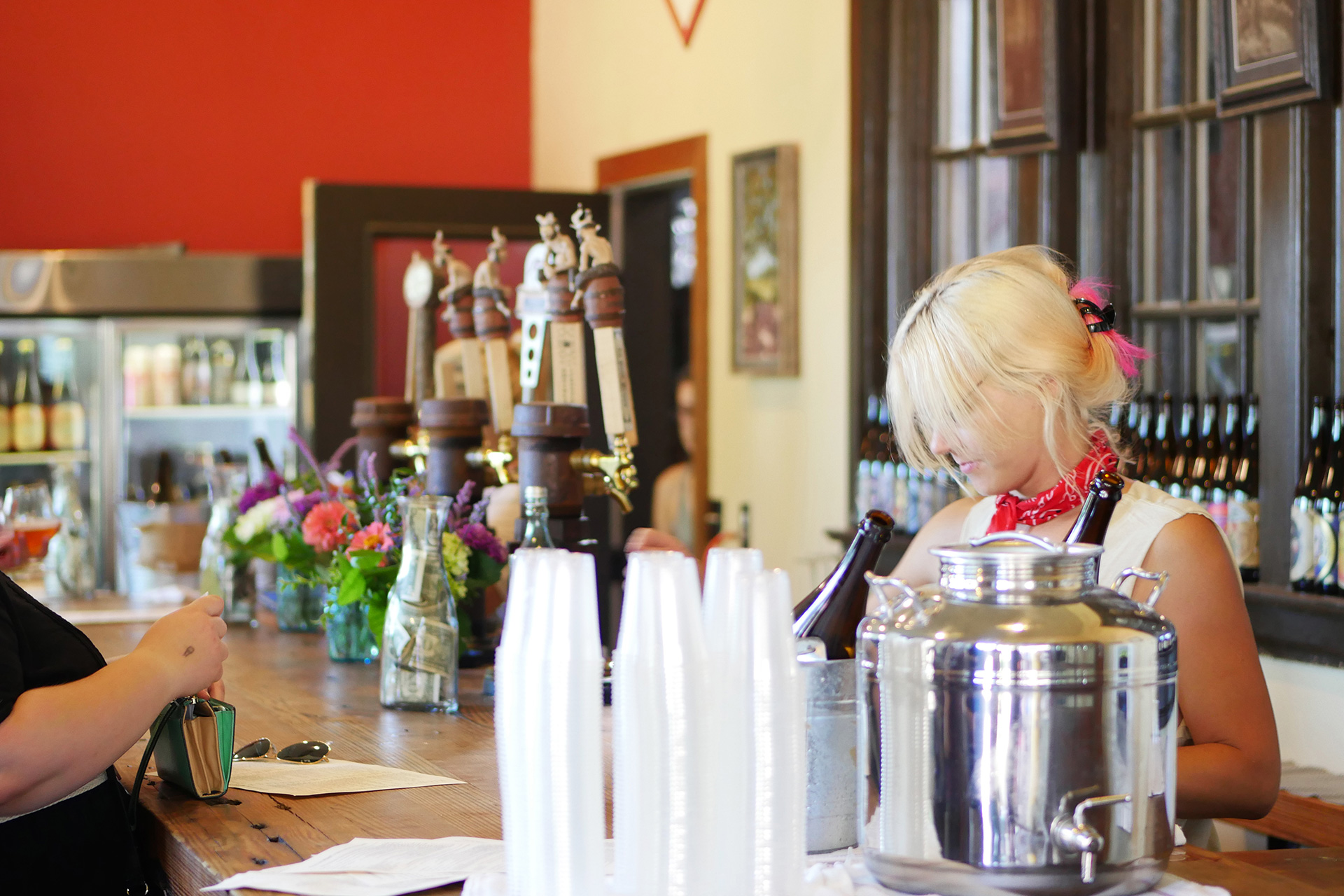
Ultimately though, the wines that make the list appeal to the palates of Walker, Schwamb, and Largess. “We all three have palates for gueuzes and lambics, so light, dry, and funky is where we tend to lean,” Walker says.
Along with their by-the-glass options, Jester King also keeps an impressive “To-Go” bottle list, both in terms of quality and breadth. At around 50 different wines on hand at any given time, Jester King is essentially a small bottle shop inside of a brewery. Their list includes bottles ranging from natural wine must-haves like Occhipinti‘s Il Frappato and Sebastien David‘s always drinkable Hurluberlu to harder to come by quaffs from Adelaide Hills’ BK Wines and even a nicely curated selection of natural wines grown in the Texas Hill Country from Lewis Wines and La Cruz de Comal Wines.
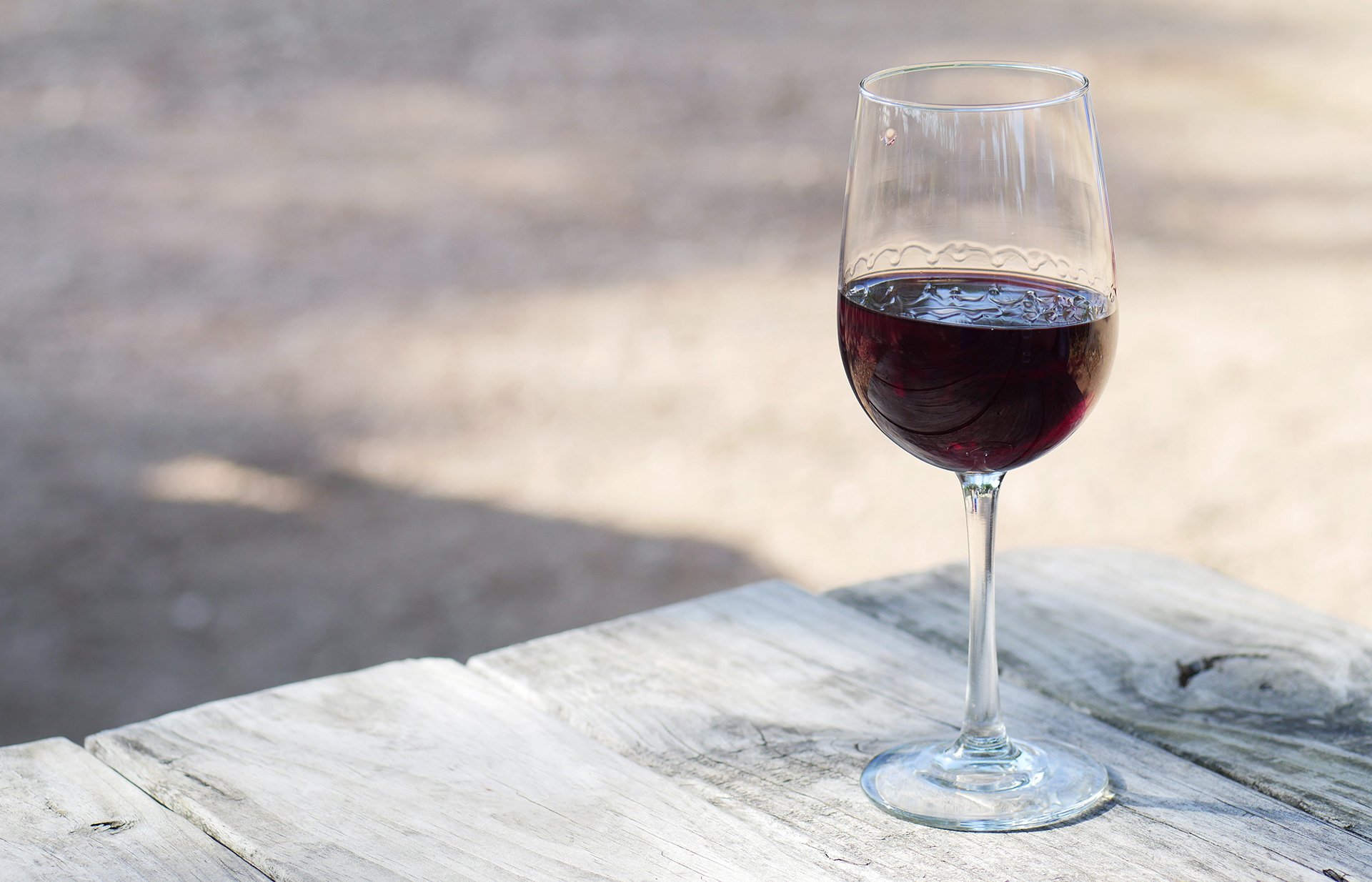
Looking down the road, Jester King has plans to start producing their own wines using the same natural techniques that dominate their wine list. In January of last year, the brewery bought 58 acres of adjacent land for the purposes of growing grapes and other agriculture. But Walker admits seeing any Jester King labels is still quite a few years away from becoming a reality.
“Farming is a slow and tedious process,” she tells me. (Every winemaker reading this article just nodded.) “Plums, peaches, blackberries, and melons are currently taking root on our farm, though it will take some time for the plants to fruit enough to be used in our beers. Bringing goats in for cheesemaking is the next big project on our list. Wine is there, but I imagine it will be a few years before we are able to get to that.”
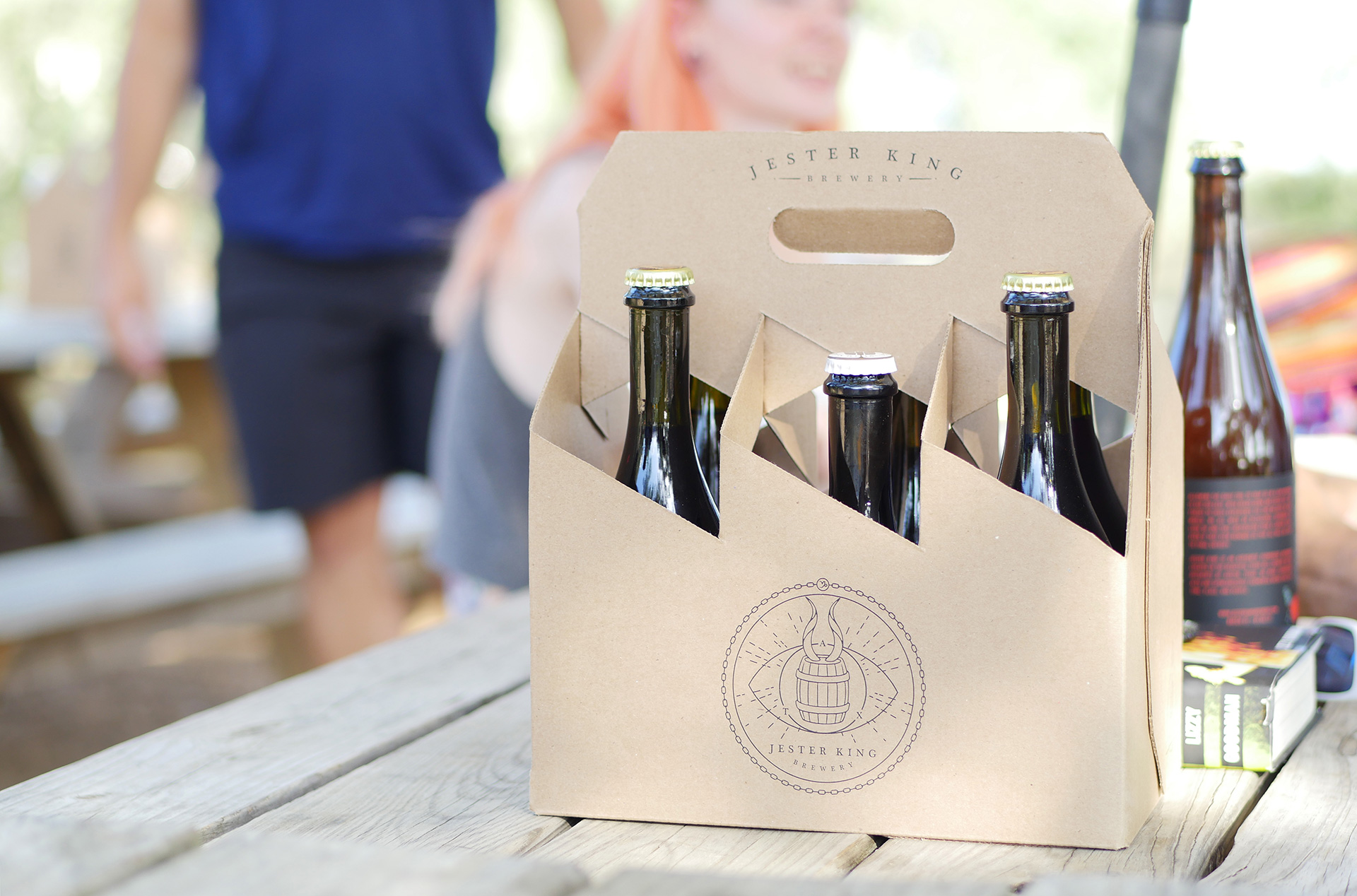
Prima facie it’s surprising, a brewery offering anything beyond a perfunctory red and white for a beer drinker’s significant other to sip on while all the sudsy geeking out is taking place. An uninspired wine list from a brewery this good would certainly be a forgivable offense. But that’s not Jester King nor is it the people who make it tick. The wine program is testament to Jester King’s commitment to their brewing philosophy. They aren’t making wild beers because the style is seeing a surge in popularity, but because they are dedicated to making terroir-driven beers.
Yet the wine program is more than just a tribute of that of the beer; it is a thing unto itself. Put it this way: the beer and wine at Jester King are like the sun and the moon. Yes, the sun is brighter and yes, the moon’s light is just a reflection of the sun’s. But sometimes, if you’re in the right place at the right time, you might just catch an eclipse.












